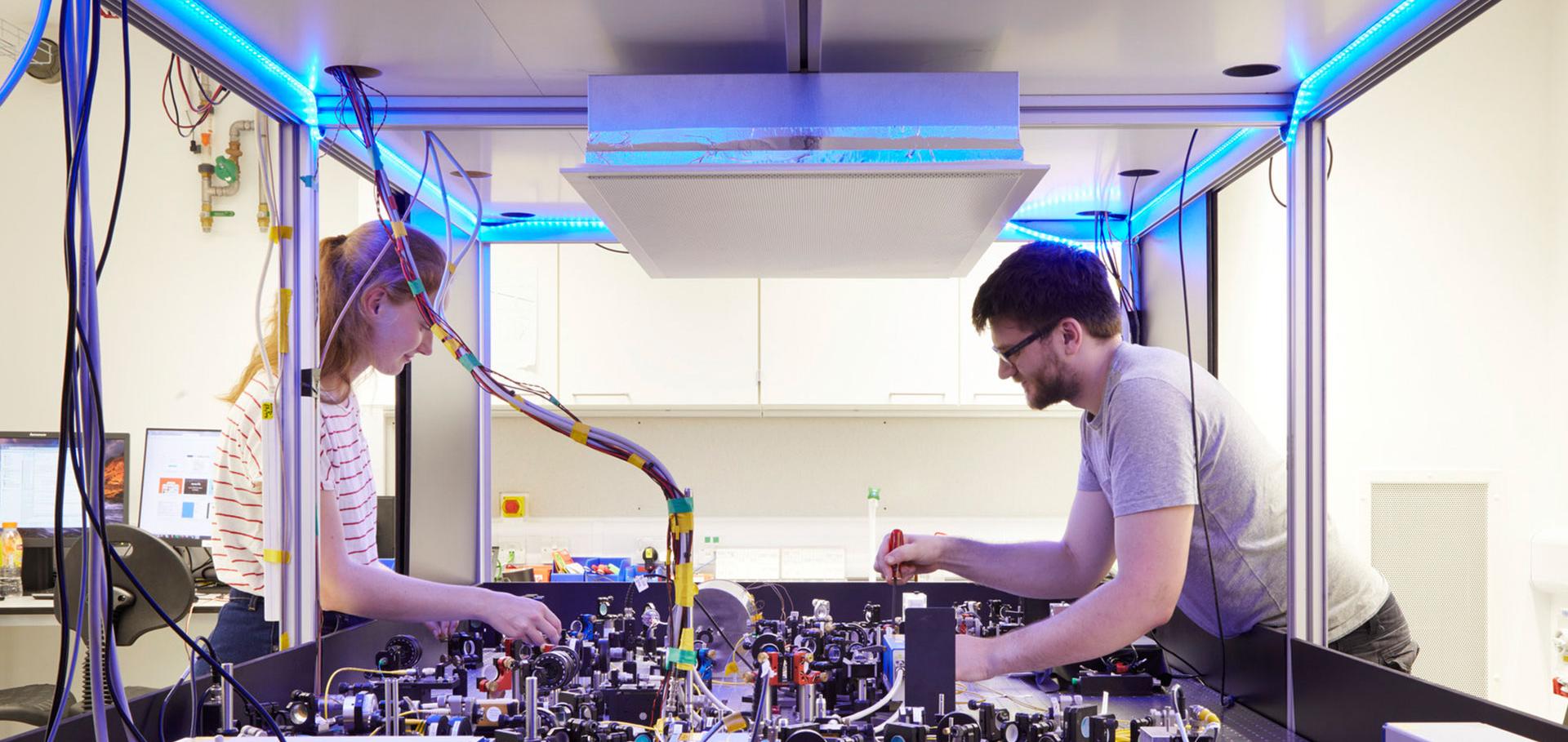Continuous variables for single photons
(2007) 367-387
Abstract:
Photons have a rich structure associated with their continuous degrees of freedom, the transverse wavevector and frequency. This modal structure can play an important role in quantum information processing based on photons. In particular, information may be coded into any of the degrees of freedom, and this means that photons may represent not only qubits, but also qudits, or qunats - where the continuous degrees of freedom are involved. Coding into quantum correlations in these degrees may be usefully employed to transmit more than one bit per photon in a secure communications link. However, it may also be detrimental: for example, it can hinder the preparation of pure states via conditional detection, and thus compromise the efficacy of quantum information processing schemes based on interference. We illustrate some general criteria that are useful for source design for QIP.Creating diamond color centers for quantum optical applications
DIAMOND AND RELATED MATERIALS 16:11 (2007) 1887-1895
Fidelity of optimally controlled quantum gates with randomly coupled multiparticle environments
J MOD OPTIC 54:16-17 (2007) 2339-2349
Abstract:
This work studies the feasibility of optimal control of high-fidelity quantum gates in a model of interacting two-level particles. One particle (the qubit) serves as the quantum information processor, whose evolution is controlled by a time-dependent external field. The other particles are not directly controlled and serve as an effective environment, coupling to which is the source of decoherence. The control objective is to generate target one-qubit gates in the presence of strong environmentally-induced decoherence and under physically motivated restrictions on the control field. It is found that interactions among the environmental particles have a negligible effect on the gate fidelity and require no additional adjustment of the control field. Another interesting result is that optimally controlled quantum gates are remarkably robust to random variations in qubit-environment and inter-environment coupling strengths. These findings demonstrate the utility of optimal control for management of quantum-information systems in a very precise and specific manner, especially when the dynamics complexity is exacerbated by inherently uncertain environmental coupling.Maximum confidence measurements and their optical implementation
EUROPEAN PHYSICAL JOURNAL D 41:3 (2007) 589-598
Optimal control of quantum gates and suppression of decoherence in a system of interacting two-level particles
JOURNAL OF PHYSICS B-ATOMIC MOLECULAR AND OPTICAL PHYSICS 40:9 (2007) S103-S125


